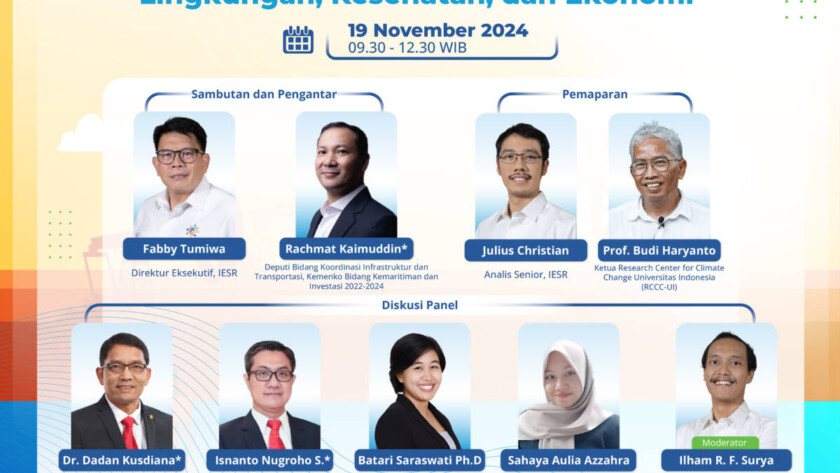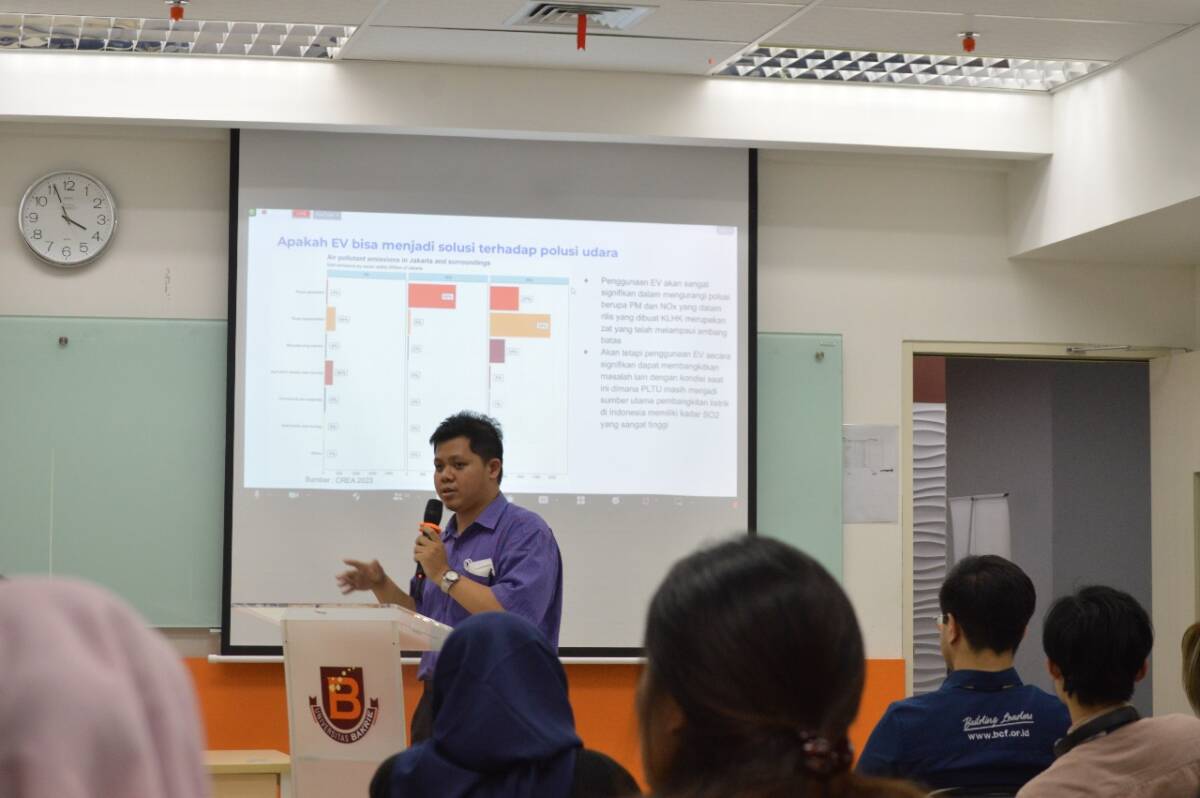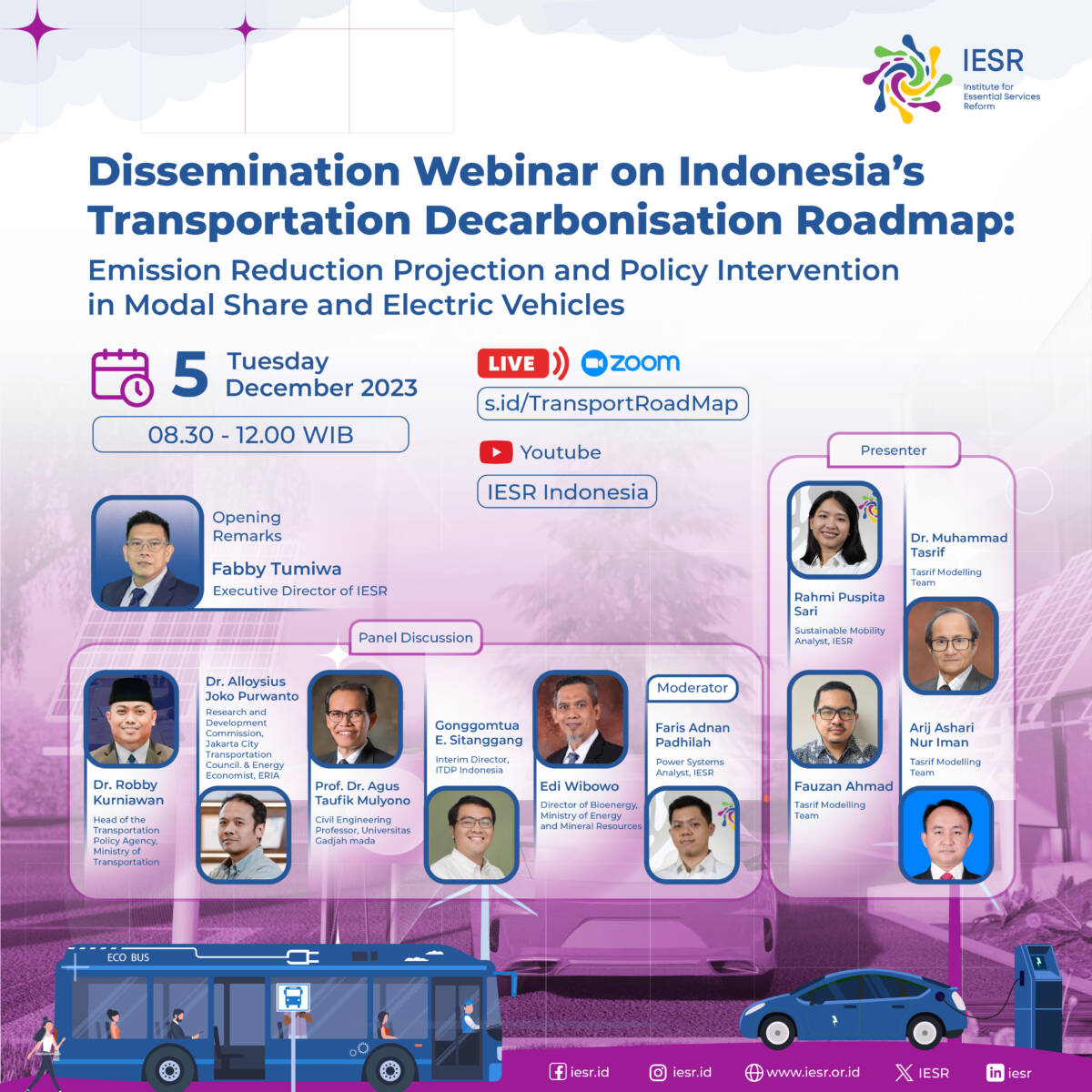The Institute for Essential Services Reform (IESR) assesses that the development of the energy transition in Indonesia will still be slow throughout 2024. Read more on Kompas.com
Executive Director of the Institute for Essential Services (IESR), Fabby Tumiwa, said that one of the causes of air pollution in Jabodetabek and also in many big cities in Indonesia is pollution due to the burning of fuel oil (BBM) in the transportation sector . Read more on Media Indonesia.

Replay Streaming
Background
Indonesia is undergoing rapid industrialization and urbanization, and due to the increase in motor vehicles urban areas are now facing serious air pollution problems. The main contributors to this problem are motor vehicle emissions (32 - 41% in the wet season and 42 - 57% in the dry season), coal-fired power…
Based on data from the Institute fo Essential Services Reform (IESR), the transportation sector, especially land transportation, contributed 110 mtCO2e of emissions in 2022. This amounted to around 73 percent of the total transportation emissions in that year.
Read more on Kata Data.

Anindita Hapsari, Agriculture, Forestry, Land Use, and Climate Change Analyst
Jakarta, June 25, 2024 - The Government of Indonesia is drafting a Second Nationally Determined Contribution (SNDC) document that will be submitted to the United Nations Framework Convention on Climate Change (UNFCCC) in August 2024. The government signaled that the SNDC target would align with limiting…

Jakarta, June 7, 2024 - The Government should take more robust measures to promote the reduction of carbon emissions in the land transportation sector. Transportation is one of Indonesia's significant greenhouse gas (GHG) emissions sources. This was revealed by Faris Adnan Padhilah, Research Coordinator of the Energy Demand Management Section, Institute for Essential Services Reform…
The Jakarta-Bandung High Speed Railway (KCJB) or Whoosh has served a total of 1,028,216 passengers during its two months of commercial operation, from October 17 to December 25, 2023.
Read more on Kompas.com.

Jakarta, December 15, 2023 - The Institute for Essential Services Reform (IESR) assesses that the energy transition is already in full swing in 2023, and it is ready to take off if the government can create the necessary supporting conditions.
IESR comprehensively discusses the development of the energy transition and opportunities to accelerate the energy…

Replay Streaming
Background
Indonesia has endorsed a commitment to keep global temperature below 1.5 OC in line with the Paris Agreement through regulation No. 6 of 2016. Although the Indonesian government has put its NDC targets (41% emission reduction in 2030 compared to BAU, and net-zero emissions in 2060), it is still not enough to…

Jakarta, October 5, 2023 - Air pollution is a major environmental challenge society faces today. With increased industrial activity, population growth, and human mobility, air pollutants have drastically increased, causing severe impacts on human health and ecosystems. The Executive Director of the Institute for Essential Services Reform (IESR), Fabby Tumiwa, emphasized that air pollution is…
